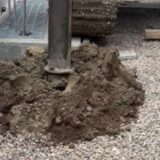What Does an Industrial Maintenance Technician Do?
Industrial maintenance technicians play a crucial role in ensuring the smooth operation of machinery and equipment in various industries. But what exactly do they do? In this blog, we’ll explore the key responsibilities and skills of industrial maintenance technicians, as well as their importance in the industrial sector.
Overview of Industrial Maintenance
Industrial maintenance involves the upkeep and repair of machinery and equipment used in manufacturing and other industrial processes. It ensures machines operate efficiently and prevents unexpected breakdowns.
This field is essential for keeping the production line moving. Imagine the chaos if an essential machine breaks down unexpectedly. Regular maintenance checks help in identifying potential issues before they become major problems. This preventive approach saves companies both time and money, making industrial maintenance a key component of any production process.
Industrial maintenance is not a one-size-fits-all approach. Different industries have different types of machinery and equipment, each with unique maintenance needs. From food processing plants to automotive factories, each sector requires specialized knowledge and techniques to keep their operations running smoothly.
Key Responsibilities
Industrial maintenance technicians are responsible for inspecting, diagnosing, and fixing machinery problems. They also perform regular maintenance tasks, such as lubricating parts, replacing worn components, and ensuring compliance with safety standards.
One of the main tasks involves conducting scheduled inspections. These inspections are aimed at identifying wear and tear on machine components, which if left unchecked, could lead to larger issues. Technicians use diagnostic tools and software to monitor equipment health, making it easier to predict when a part might fail.
In addition to prevention, technicians are also the first responders when a machine breaks down. Quick and efficient troubleshooting is vital to minimize downtime. They must quickly diagnose the issue, source the necessary parts, and make the repairs as efficiently as possible to get the machinery back in action.
Documentation is another critical aspect of their role. Keeping detailed records of maintenance activities, machine performance, and repair work helps in planning future maintenance and identifying recurring problems. This data is invaluable for improving overall operational efficiency.
Essential Skills and Qualifications
To be effective in their role, technicians need a solid understanding of mechanical and electrical systems. They should have problem-solving skills, attention to detail, and the ability to work under pressure. Formal education or training in industrial maintenance is often required.
Technical skills are at the heart of this profession. Understanding how different machines work, from their mechanical parts to the software that controls them, is crucial. Many technicians have backgrounds in mechanical engineering or similar fields, and often undergo specialized training programs.
Soft skills are just as important. Being able to communicate effectively with team members and supervisors ensures that everyone is on the same page. Good communication can prevent misunderstandings and help in coordinating complex maintenance tasks. Attention to detail can often mean the difference between a quick fix and a prolonged problem.
Certifications and ongoing education are also a part of a successful technician’s career path. As technology evolves, so do the tools and techniques used in industrial maintenance. Continuous learning helps technicians stay up-to-date with the latest advancements, making them more effective in their roles.
Types of Maintenance
Maintenance can be classified into preventive, predictive, and corrective. Preventive maintenance involves routine checks and servicing to prevent issues. Predictive maintenance uses data and analytics to predict and prevent failures. Corrective maintenance addresses problems after they occur.
Preventive maintenance is all about being proactive. It includes activities like regular cleaning, lubrication, and adjustments. These tasks help in maintaining optimal performance and extending the lifespan of equipment. The goal is to avoid emergencies by keeping everything running smoothly.
Predictive maintenance takes a more analytical approach. By using sensors and data analytics, technicians can monitor the condition of equipment in real-time. This method allows them to predict when a component is likely to fail, so they can replace it before it causes any disruption. It’s a more sophisticated and technology-driven strategy.
Corrective maintenance, on the other hand, is reactive. It’s about fixing issues after they happen. While this form of maintenance is sometimes unavoidable, it’s generally more costly and disruptive. The aim is to minimize the need for corrective measures by being diligent with preventive and predictive maintenance tasks.
Tools and Equipment Used
Technicians use a variety of tools, including wrenches, screwdrivers, diagnostic equipment, and specialized machinery tools. They also use software for maintenance scheduling and tracking.
Basic hand tools are the foundation of any technician’s toolbox. Wrenches, pliers, screwdrivers, and hammers are used for most tasks. These tools may seem simple, but they are indispensable for everyday maintenance activities.
Diagnostic equipment is also essential. Devices like multimeters, thermal imaging cameras, and vibration analyzers help technicians understand the condition of the machinery. These tools provide valuable data that helps in diagnosing problems more accurately and efficiently.
Specialized tools are often required for specific tasks. For example, laser alignment tools ensure that parts are precisely positioned. Hydraulic torque wrenches might be used for high-torque applications. Having the right tool for the job can make a significant difference in the quality and efficiency of the work performed.
In addition to physical tools, software solutions play a critical role. Maintenance management software helps technicians schedule tasks, track repairs, and maintain comprehensive records. These digital tools streamline the workflow, making it easier to manage multiple tasks and ensuring nothing is overlooked.
Safety Considerations
Safety is paramount in industrial maintenance. Technicians must follow strict safety protocols to protect themselves and others from hazards. This includes wearing protective gear and adhering to safety regulations.
Personal protective equipment (PPE) is a must. Items like safety glasses, gloves, and steel-toed boots are essential to protect technicians from common hazards. In some cases, respiratory protection or hearing protection might also be needed, depending on the environment.
Following established safety protocols is non-negotiable. Procedures like lockout/tagout (LOTO) ensure that machinery is properly shut down and cannot be restarted until the maintenance work is complete. These measures help prevent accidents and ensure a safe working environment.
Continuous safety training is also important. Regular training sessions keep technicians updated on the latest safety standards and practices. It’s not just about knowing what to do, but also about staying alert and aware of potential hazards at all times.
Career Outlook and Opportunities
The demand for skilled industrial maintenance technicians is growing, with opportunities in various industries such as manufacturing, energy, and transportation. A career in this field can be both lucrative and fulfilling, offering room for advancement and specialization.
With the rise of automation and advanced machinery, the role of maintenance technicians is becoming more critical. Industries are increasingly relying on high-tech equipment, which requires skilled professionals to maintain and repair. This trend is driving up the demand for well-trained technicians.
Career progression in this field is promising. Entry-level positions offer ample opportunities for learning and skill development. With experience, technicians can move into senior roles or specialize in particular areas, such as robotics or automation. There are also opportunities for those interested in supervisory or managerial positions.
Job security is another significant advantage. As long as there are machines, there will be a need for maintenance technicians. This enduring demand makes it a stable career choice. Additionally, the skills acquired in this field are transferable across industries, providing flexibility for career mobility.
Conclusion
Industrial maintenance technicians are vital to the efficiency and productivity of any industrial operation. From routine maintenance to emergency repairs, their expertise ensures that machinery runs smoothly and safely. If you’re considering a career in this field, it’s a role that offers both challenges and rewards.



